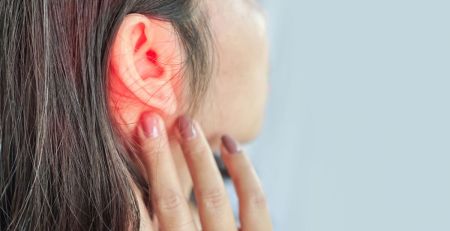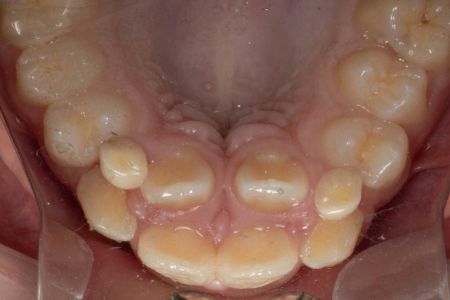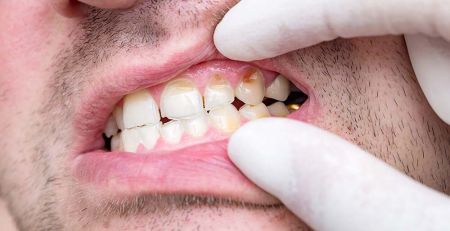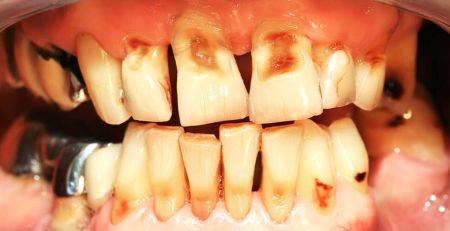The consumption of alcohol is a normal part of social life for many people. However, it’s important to understand that while an occasional glass of wine or beer may not pose serious problems, habitual or heavy drinking can have severe consequences for oral health.
What can alcohol do to your teeth?
Alcohol, while often enjoyed socially and part of many cultural rituals, can profoundly affect your teeth’ health if consumed excessively or without proper oral hygiene. Its impacts range from causing tooth discolouration and enamel erosion to contributing to serious conditions such as tooth decay and gum disease.
Alcohol can have several negative effects on your teeth and gums. This article explores the potential risks and detrimental effects of alcohol on your oral health, shedding light on why moderation and a consistent dental care routine are crucial for maintaining a healthy smile.
The Influence of Alcohol on Enamel Erosion and Tooth Decay
Alcohol can contribute to enamel erosion and tooth decay in several ways. Firstly, many alcoholic drinks, particularly mixed drinks, are high in sugars and acids, which can harm the teeth. The bacteria in your mouth feed on sugars, producing acids, which can eat away at the tooth’s enamel, causing erosion and cavities.
Secondly, alcohol has a dehydrating effect, leading to dry mouth. Saliva is crucial in maintaining oral health, as it helps wash away food particles and neutralize harmful acids. Decreased saliva leaves your teeth more vulnerable to decay and erosion.
Alcohol Can Stain Teeth

Alcohol, especially heavily coloured, such as red wine and dark liquors, can lead to tooth staining. These drinks contain chromogens, compounds with strong pigments that latch onto the tooth enamel, causing discolouration over time.
Additionally, alcohol, in general, tends to dehydrate the mouth. A dry mouth lacks saliva, crucial for washing away food particles and protecting teeth from decay and staining.
Therefore, frequent consumption of alcohol could increase the likelihood of teeth becoming stained due to the reduced salivary flow and the staining nature of certain beverages. Practising proper oral hygiene can help minimise the effects of alcohol on teeth.
Dehydration and Dry Mouth
Alcohol is a diuretic, which can cause you to urinate more, leading to dehydration.
Dehydration can result in dry mouth, which is uncomfortable and harmful to oral health. Saliva is crucial for washing away food particles and neutralising acids that could harm your teeth and gums. When saliva production decreases due to dry mouth, harmful bacteria can multiply, increasing your risk of gum disease.
Gum Disease
Alcohol can irritate the gums, and its sugars can feed harmful bacteria, increasing the risk of gum disease. Alcohol’s dehydrating effect can lead to gum disease, as a dry mouth provides a conducive environment for the growth of harmful bacteria that can irritate and infect your gums.
Increased Plaque

Alcohol, particularly sugary or acidic alcoholic drinks, can increase plaque. Plaque, a sticky film of bacteria, can build up on and between your teeth and the gum line, leading to gum disease if improperly cleaned.
Irritation of Mouth Tissues
Alcohol can irritate and inflame your gums, cheeks and palate, especially if you’re drinking high-proof spirits or other alcoholic beverages with high alcohol content.
Nutritional Deficiencies
Excessive alcohol consumption can also lead to nutritional deficiencies, such as vitamin C, necessary for gum health. Nutrients, including calcium and vitamins, are vital for oral health. A nutrient deficiency can weaken the teeth and contribute to tooth decay and gum disease.
Lowered Immune Response
Chronic alcohol use can suppress the immune system, making it harder for your body to fight the bacteria that cause gum disease.
Oral Cancer
Perhaps the most severe impact of heavy drinking is an increased risk of oral cancer. According to the Oral Cancer Foundation, those who drink alcohol heavily are six times more likely to develop oral cancer than non-drinkers. This risk increases even further for individuals who both smoke and drink.
Alcohol can inflict harm on the protective layer within the mouth. After tobacco usage, heavy alcohol consumption is a key risk factor for oral cancer.
The likelihood of developing oral cancer is four times higher for those who consume alcohol heavily. The risk factor could amplify up to 15 times if combined with smoking, as stated by the Australian Dental Association (ADA). Diminishing alcohol intake or abstaining entirely can decrease these risks over time.
Oral cancer can emerge in different mouth parts, including the cheeks, gums, and lips. Persistent mouth ulcers, discolourations, or persisting patches for over two weeks could indicate this disease.
How to Protect Your Oral Health

While the best way to prevent these issues is to limit alcohol consumption, it’s also important to maintain good oral hygiene. Brushing twice daily, flossing daily, rinsing with mouthwash, and regular dental check-ups can significantly reduce your risk of oral health problems caused by alcohol. If you drink, try to do so in moderation and consider drinking water alongside your alcoholic beverages to counteract dehydration and dry mouth.
It’s important to note that while moderate and occasional alcohol consumption may not lead to these issues, regular heavy drinking significantly increases the risk. Maintaining good oral hygiene and regular dental check-ups can help mitigate these risks.
Contact a dentist near me on the Gold Coast and Brisbane
If you’re seeking professional advice or have concerns about your oral health, the team at Amazing Smiles is ready to assist. Renowned across South East Queensland for delivering top-quality, affordable dental care, our experienced team offers a range of services to keep your smile healthy and bright. With conveniently located clinics in Gold Coast, Jimboomba, Logan, Bray Park, and Wynnum, we’re committed to providing personalised care tailored to your unique needs.
At Amazing Smiles, we believe everyone deserves a healthy, radiant smile. We’re here to help you achieve and maintain this every step of the way. Don’t let your oral health take a back seat. Contact us today to schedule an appointment and take the first step towards achieving optimal oral health.
Disclaimer: This article provides general information only and is not intended to replace professional medical advice, diagnosis, or treatment. It is not recommended to use this information for self-diagnosis or self-treatment purposes. Amazing Smiles urges individuals to seek advice from a qualified healthcare provider or local dentist for dental health concerns. Always consult a dentist or another appropriately qualified health provider for accurate diagnosis and treatment recommendations.
References:
- Alcohol and tobacco and the risk of cancers of the upper aerodigestive tract in Latin America: A case–control study, 2019.
- Alcohol drinking in never users of tobacco, cigarette smoking in never drinkers, and the risk of head and neck cancer: pooled analysis in the International Head and Neck Cancer Epidemiology Consortium, 2007.









